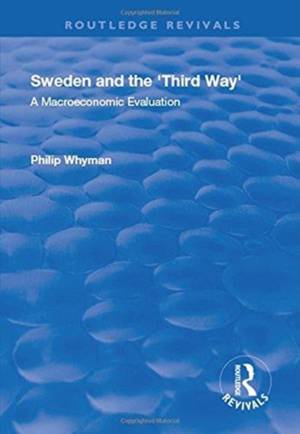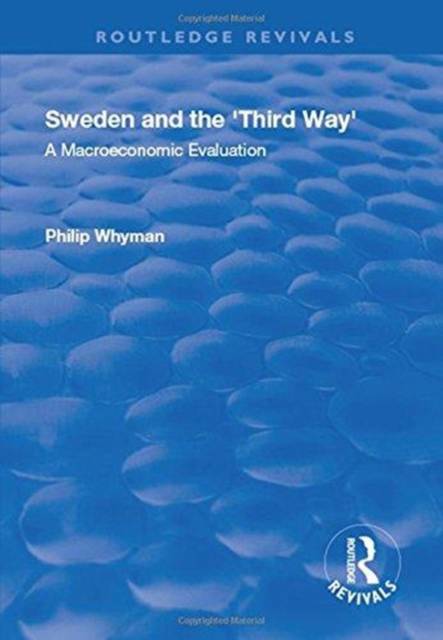
Door een staking bij bpost kan je online bestelling op dit moment iets langer onderweg zijn dan voorzien. Dringend iets nodig? Onze winkels ontvangen jou met open armen!
- Afhalen na 1 uur in een winkel met voorraad
- Gratis thuislevering in België vanaf € 30
- Ruim aanbod met 7 miljoen producten
Door een staking bij bpost kan je online bestelling op dit moment iets langer onderweg zijn dan voorzien. Dringend iets nodig? Onze winkels ontvangen jou met open armen!
- Afhalen na 1 uur in een winkel met voorraad
- Gratis thuislevering in België vanaf € 30
- Ruim aanbod met 7 miljoen producten
Zoeken
Omschrijving
This title was first published in 2003. The creation of a 'Third Way' between unfettered capitalism and old-style Keynesian-corporatist forms of social democracy has become the driving force behind the policy programmes of many left-of-centre political parties in the industrialised nations of the world today. Sweden and the 'Third Way' critically evaluates this 'new' social democracy by examining the profound shift in Swedish political economy from being the prototype old-style social democracy towards the 'Third Way' synthesis of neo-liberalism and elements of traditional social democracy. Philip Whyman evaluates internal and external challenges to Swedish macroeconomic policy - including globalisation, European integration, post-Fordist technological change and the relative empowerment of capital - to discover the extent to which national economic autonomy is constrained. Furthermore, he considers the plausibility of revising the core elements of the traditional 'Swedish Model' as an alternative to the prevailing macroeconomic platform.
Specificaties
Betrokkenen
- Auteur(s):
- Uitgeverij:
Inhoud
- Aantal bladzijden:
- 264
- Taal:
- Engels
- Reeks:
Eigenschappen
- Productcode (EAN):
- 9781138719415
- Verschijningsdatum:
- 22/11/2017
- Uitvoering:
- Hardcover
- Formaat:
- Genaaid
- Afmetingen:
- 152 mm x 219 mm
- Gewicht:
- 489 g

Alleen bij Standaard Boekhandel
+ 208 punten op je klantenkaart van Standaard Boekhandel
Beoordelingen
We publiceren alleen reviews die voldoen aan de voorwaarden voor reviews. Bekijk onze voorwaarden voor reviews.











